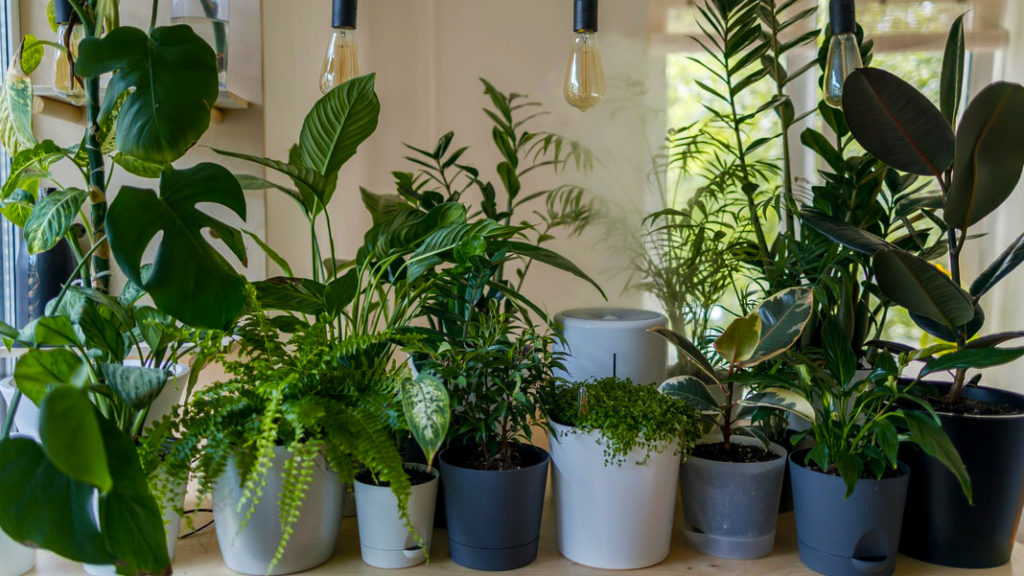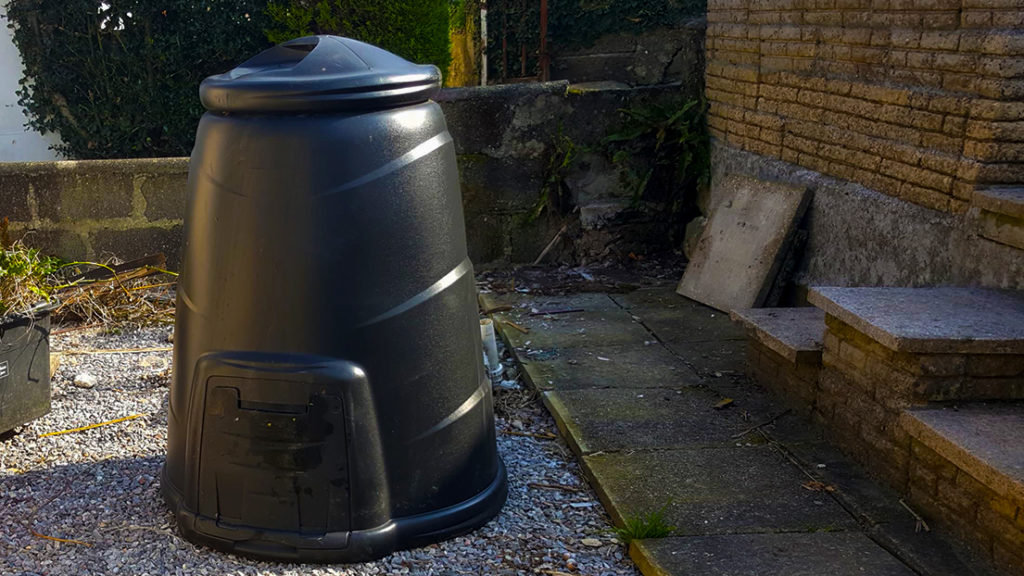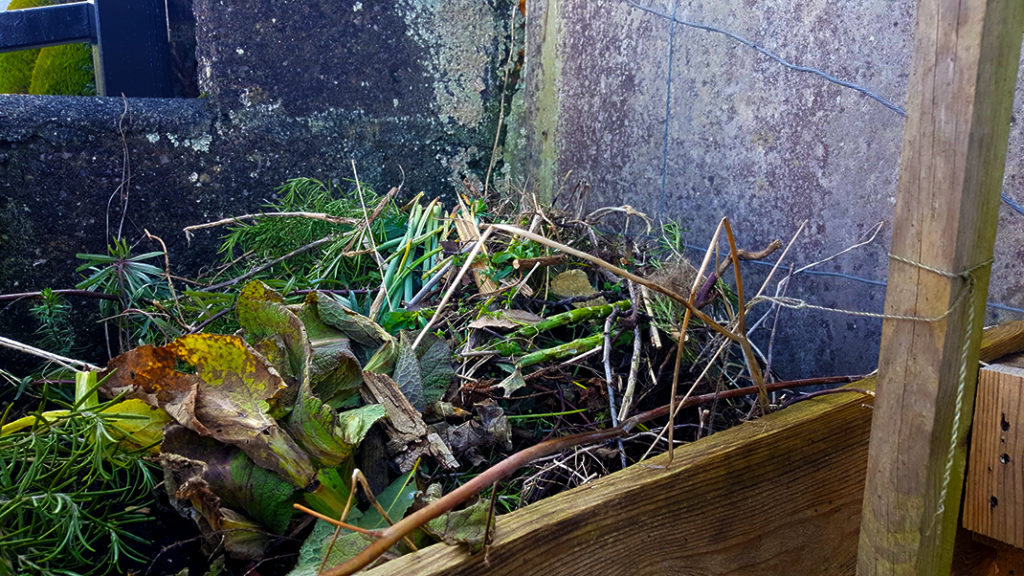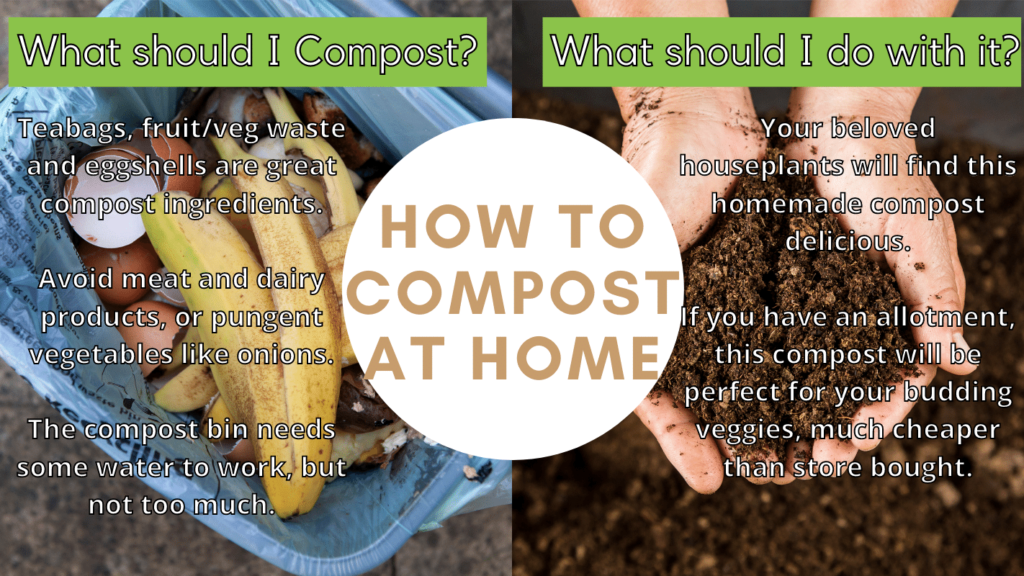Improve your houseplant’s prospects and become more environmentally efficient in time for this year’s compost week.

Have you ever looked at your brown, dying houseplant and thought that it deserved better? No matter how much you try to care for it, providing it ample sunlight and plenty of water, it just does not seem to be thriving? The solution may lie in the soil your plant is growing in, something you’ve probably been taking for granted for years, being depleted of nutrients. As the hotly anticipated Compost Week is fast approaching, now is the perfect time to give your malnourished marigolds and starving succulents a taste of the good life.
Where to store your compost bin:
If you’re living in a big city like Cardiff, finding the space for a massive compost bin is not going to be possible. Without the space in your back garden, the best option is a smaller, lidded plastic container – something you can fit under the sink. Stab holes into the lid before you start filling it, to allow for airflow, and you’re good to go!

What to add to your compost bin:
Smell can be a concern when it comes to composting, but as long as you take care when filling your compost bin, you should be fine. Do not add meat or dairy of any kind – the only animal product that should be going into your compost is eggshells.
Onion skins are good compost material, but they tend to smell pretty strongly, so you might choose not to add them. Teabags and vegetable waste are the best compost material, and will create some truly delectable soil. You can also use the corpses of previous, dead houseplants in a sort of dark cannibalistic ritual to ensure your compost is truly sublime.
Water is a vital ingredient in creating compost, but not too much, you’ll want about 10% of the compost mixture to be water – damp but not wet.

Treating your compost as it develops:
Now that you’ve got your small compost bin tucked under the sink and full of food waste, you’ll be in for a wait. The compost should be churned with a fork or another utensil about once a week in order to mix up the microbes and keep the composting process somewhat regular throughout the bin.
You can add earthworms to the bin, which will do a lot of the work for you and create incredibly good soil – this isn’t necessary but definitely recommended.
Your compost is ready – now what?
Slowly and yet so quickly, two months will pass. At this point, your compost should be ready for use! Your hungry houseplants will be desperate for the delicious compost, they’ve been smelling it under your sink since March, and now they finally get to try it.
Adding the compost to your houseplant’s pot is easy, you do not need to mix it in deep. Spoon enough compost in to fill the plant pot about an inch, and mix it into the top layer or so, and you should be good to go.
Reapplying compost to your houseplants is only really necessary about two or three times a year. Now, hopefully, your future houseplants will not have to suffer and can grow much healthier than before.

